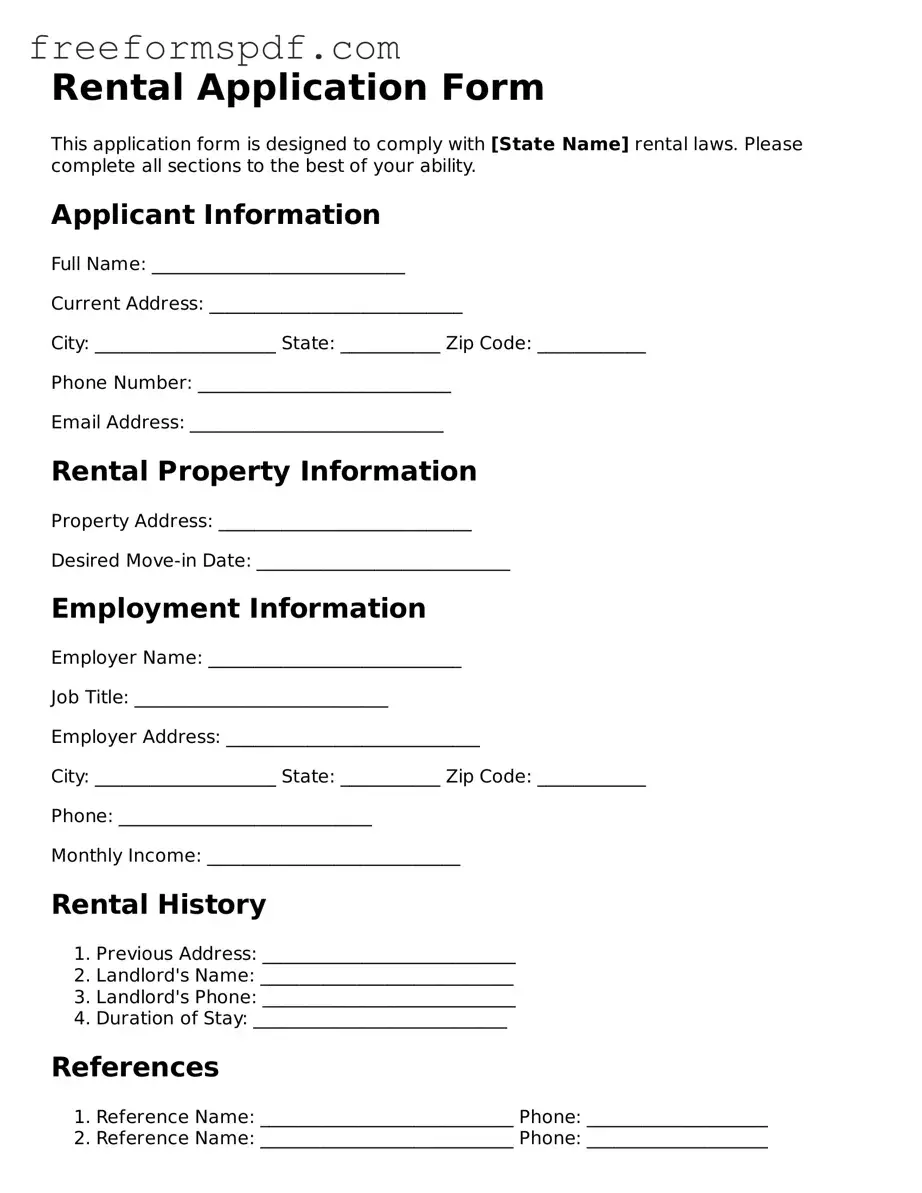Rental Application Document
Rental Application - Customized for Each State
Common mistakes
-
Incomplete Information: Many applicants fail to provide all necessary details. Missing information can delay the application process or lead to automatic disqualification.
-
Inaccurate Contact Details: Providing incorrect phone numbers or email addresses can hinder communication. Ensure that all contact information is accurate and up to date.
-
Neglecting to Disclose Income: Some applicants do not fully disclose their income or financial situation. Transparency is crucial; landlords need this information to assess eligibility.
-
Ignoring Rental History: Omitting previous rental history or providing false information can raise red flags. Be honest about past rentals to build trust with potential landlords.
-
Not Providing References: Failing to include personal or professional references can weaken an application. Good references can support your case and demonstrate reliability.
-
Overlooking Signature Requirements: Some applicants forget to sign the application. Without a signature, the application may not be considered valid.
Learn More on This Form
-
What is a Rental Application form?
The Rental Application form is a document that potential tenants fill out to express their interest in renting a property. This form typically collects personal information, employment history, rental history, and references. Landlords or property managers use this information to assess the suitability of applicants for tenancy.
-
Why do I need to complete a Rental Application?
Completing a Rental Application is essential for several reasons. It allows landlords to gather necessary information to make informed decisions about potential tenants. By reviewing the application, landlords can verify your rental history, employment status, and financial stability. This process helps ensure a safe and responsible living environment for all residents.
-
What information is typically required on the Rental Application?
While the specific requirements may vary by landlord or property management company, most Rental Applications ask for the following information:
- Full name and contact information
- Social Security number or other identification
- Employment details, including employer name and income
- Rental history, including previous addresses and landlord contacts
- References from employers or previous landlords
- Consent for background and credit checks
Providing accurate and complete information helps streamline the application process.
-
How long does it take to process a Rental Application?
The time it takes to process a Rental Application can vary widely. Generally, landlords aim to complete the review within a few days to a week. Factors that influence processing time include the number of applications received, the thoroughness of background checks, and the responsiveness of references. If you have not heard back after a week, it is advisable to follow up with the landlord or property manager for an update.
Misconceptions
When it comes to renting a property, many individuals encounter the rental application form. However, several misconceptions can lead to confusion. Here are five common misunderstandings about this important document:
-
All rental applications are the same.
Many people assume that all rental applications follow a standard format. In reality, each landlord or property management company may have unique requirements and questions tailored to their specific needs.
-
Submitting an application guarantees approval.
Some applicants believe that simply filling out and submitting a rental application ensures they will be accepted. However, landlords review applications carefully, considering factors such as credit history, income, and rental history before making a decision.
-
Your personal information is not secure.
Another misconception is that personal information provided on rental applications is not protected. In fact, reputable landlords and property managers are required to handle your information with care and confidentiality, following applicable privacy laws.
-
Only your credit score matters.
While a credit score is important, it is not the only factor that landlords consider. They also look at your rental history, income, and references to get a comprehensive view of your reliability as a tenant.
-
You can lie on your application.
Some individuals think it’s acceptable to provide false information on their rental applications. However, this can lead to serious consequences, including denial of the application or eviction if the truth comes to light later on.
Understanding these misconceptions can help applicants navigate the rental process more effectively and increase their chances of securing their desired home.
Other Types of Rental Application Forms:
Letter to Terminate Tenancy - Clarifying the move-out process in this letter can alleviate potential disputes in the future.
The California Employment Verification form is a document used to confirm an employee’s job status and details with their current or past employer. This form is an essential tool for various purposes, including loan applications, background checks, and other employment-related processes. For further information and resources, you can visit PDF Documents Hub before filling out the form.
